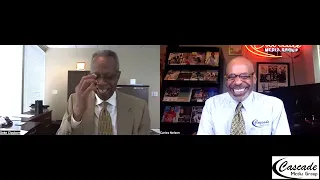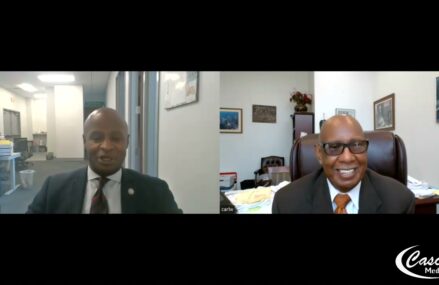
By: Lindsay Dietz
We are living in a unique era characterized by unprecedented diversity and a turbulent
political landscape. With access to more information sources than ever before, staying
balanced and well-informed has become increasingly challenging. Over the years, I
have realized that even in times of turbulence and uncertainty, we can practice critical
thinking and mindfulness to support us on our journey. My "Seven Principles for Modern
& Civic Participation" offer simple but effective strategies to navigate these complex
times, and help you thrive in the modern political climate.
Principle #1- Stay Informed
The foundation of navigating the political climate is staying informed. Consuming news
from multiple reputable sources ensures you get a balanced view and reduces the risk
of bias. Engaging with diverse perspectives from across the political spectrum helps you
understand different viewpoints and broadens your horizons. Be aware of both overt
and subtle biases in media and your own thinking. As Daniel Kahneman states in his
book Thinking, Fast and Slow, "We can be blind to the obvious, and we are also blind to
our blindness" (2011). To avoid being "blind" to your own biases in an era of information
overload, rely on news sources that are objective and critical in their analysis. This
approach is essential for discerning the truth amidst the noise.
But what is the truth? Truth involves accuracy, context, and the responsible
presentation of facts supported by data. It is not just about providing correct information
but also about offering a comprehensive understanding of an issue without resorting to
blame. A responsible and empathetic approach helps in the formation of well-rounded,
analytical perspectives, enabling you to make informed decisions and form balanced
opinions.
Principle #2- Know the Issues, Know Yourself: A Path to Informed Engagement
Educating yourself about key policy issues is essential for meaningful engagement. It is
important to understand the intricacies of healthcare, education, the economy, foreign
policy, and other topics you are passionate about. Being knowledgeable empowers you
to advocate for informed policies. In an interconnected world, economic awareness
helps in understanding the factors that influence political decisions and public opinion,
and their impact on national politics. Moreover, understanding the cultural and historical
context of different regions helps in appreciating the complexities of international
relations. A global perspective enriches your understanding of both domestic and
international political dynamics.
However, knowledge alone is not enough. To truly engage and contribute to positive
change, self-awareness, empathy, and community engagement are vital in transcending
personal interests for the collective good. Cultivate empathy by considering the
experiences and perspectives of others. Volunteering or participating in community
service provides a broader perspective and a sense of connection. Focusing on actions
and policies that promote the common good and collective well-being enriches the
political discourse. In his book, Against Empathy: The Case for Rational Compassion,
Paul Bloom reminds us of the importance of rational compassion in making ethical
decisions (2016).
Having a strong moral compass is essential in navigating the political landscape with
integrity. Doing the right thing, even when no one is watching, upholds personal and
societal values. Integrity builds trust and sets a positive example for others. It involves
making ethical decisions that contribute to the greater good, standing up for justice, and
being honest in all interactions. This principle of moral integrity ensures that actions
align with values, fostering a more ethical and accountable society.
Principle #3- Engage in Civil Discourse
Constructive dialogue is crucial for a healthy political environment. Engage in respectful
conversations, even when opinions differ. Practicing active listening to fully understand
others' perspectives before responding fosters mutual respect and deeper
understanding. Civil discourse bridges divide and promotes collaborative problem-
solving. In her book The Argument Culture, Deborah Tannen emphasizes the
importance of reducing confrontational communication suggesting that "the war on
words" often hinders productive dialogue (1998). In addition, social media is a double-
edged sword in today's political climate. It’s crucial to fact-check information before
sharing it. Avoid being an echo chamber by making sure you are following a diverse
range of people or organizations with different viewpoints. This exposure to different
opinions prevents reinforcement of pre-existing beliefs, bias, and polarization, and also
promotes a more comprehensive understanding of the issues we face together as a
community.
Principle #4- Participate in the Political Process and Advocacy efforts
Active participation in the political process is a powerful way to influence change.
Exercise your right to vote in local, state, and national elections. Voting is not only a
fundamental democratic right that our ancestors had fought for, but also a civic duty that
can shape the future. By casting your vote, you contribute to the selection of leaders
and the direction of policies that affect your community and country. Additionally,
grassroots involvement and advocacy can amplify your voice and drive significant
societal changes. Encouraging others to vote and participate also strengthens
democracy, ensuring diverse voices are heard and represented. Participation in
democracy is essential for ensuring that government actions reflect the will of the
people. Stay engaged by participating in community meetings, town halls, or political
rallies. This active involvement ensures that your voice is heard and contributes to the
democratic process. WE are the government.
Advocacy and volunteering for different causes are equally crucial. Whether it's working
with local organizations to support environmental conservation, helping underserved
communities, or championing human rights, these activities contribute to positive
change and societal improvement. Advocacy raises awareness about critical issues and
influences public policy, while volunteering addresses immediate community needs and
fosters a culture of solidarity and support.
Principle #5- Take Care of Yourself and Your Mental Health
Maintaining mental and emotional balance is key to navigating the political landscape.
Manage stress through self-care practices, staying connected with supportive people,
and taking breaks from the news. Focus on positive actions and potential solutions
rather than getting overwhelmed by negative news. Resilience helps in coping with the
challenges and uncertainties of the political environment, and being intentional about
mindfulness practices, can significantly reduce stress and improve your well-being.
Mindfulness practices such as meditation, twenty minutes walks, deep breathing, or
yoga can help you stay centered and reduce stress. Being mindful of your emotions and
reactions enables you to respond rather than react to political news and discussions
and learn when to turn it off as a selfcare act.
Taking care of oneself is not just about managing stress, but also about being the
change you want to see in the world. When you model self-care, mindfulness, and
resilience, you set an example for others to follow. This leadership by example can
inspire positive behaviors and attitudes within your community, contributing to a more
supportive and constructive political environment.
Principle #6- Support the Present to Build a Better Future
The actions and decisions we make today significantly impact future generations,
including the underserved/unheard communities. By staying informed, participating in
the political process, and upholding a strong moral compass, we contribute to creating a
better world for those who come after us. However, teaching younger generations, the
importance of civic engagement, critical thinking, and ethical behavior ensures that they
inherit a society built on strong democratic values, empathy, and integrity. Furthermore,
fostering an environment where the youth are educated about the significance of their
participation in democracy can lead to a more engaged, responsible, confident, and
informed citizenry.
In their book The Upswing: How America Came Together a Century Ago and How We
Can Do It Again, Robert Putnam and Shaylyn Romney Garrett explore how past
generations united to create a more cohesive society, offering a blueprint for future
efforts (2020). Investing in the future by making responsible and forward-thinking
choices today helps pave the way for a more just, equitable, and sustainable world for
all. This includes addressing systemic inequalities and ensuring that all voices are heard
and represented in the political process, which is essential for a truly democratic
society.
Principle #7- Choose your call to action
This principle is about selecting a meaningful call to action that resonates with you
personally. It is meant to evolve as you progress in your participation and advocacy
efforts, or until you feel you have made a significant impact. As an example, I'll share
mine:
As we reflect on the sacrifices made by ALL the great people who served our country,
let’s honor their legacy by committing ourselves to becoming active participants in our
democracy, promoting justice, and encouraging others to vote and engage in the
political process to support our communities.
This Memorial Day weekend, let’s commit to making a positive impact on our society,
honoring the past, and building a better future for the generations to come. Let’s create
a ripple effect with our actions today to ensure a brighter future where everyone can
stand up against injustice and advocate for the rights of those whose voices have not
been heard.Cascade Media Group Contributor [email protected]



